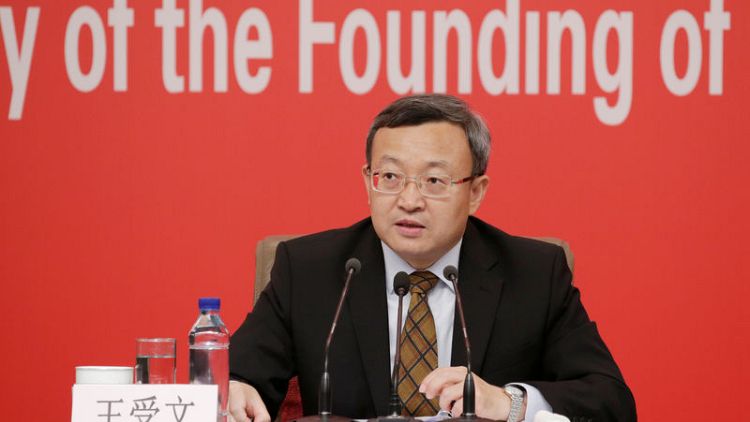BEIJING (Reuters) - China will eliminate all restrictions on foreign investments not included in its self-styled "negative lists", a vice commerce minister said on Tuesday, signalling upcoming directives.
It will also "neither explicitly nor implicitly" force foreign investors and foreign companies to transfer technologies, Wang Shouwen told a news conference in Beijing.
Such transfers have been a major source of tension between China and the United States, which have been embroiled in a trade war for over a year.
The 'negative lists' specify industries in which investors, foreign or domestic, are restricted or prohibited.
"We will move faster to open up the financial industry," said Wang, eliminating all restrictions on the scope of business for foreign banks, securities companies and fund managers.
Policies will also be fine-tuned to ensure foreign and domestic players have equal market access to manufacturing new-energy vehicles, he said.
The new measures are intended to ensure stable foreign investment and create a transparent, predictable investment environment, Wang said.
Chief U.S. and Chinese trade negotiators talked on the phone recently and will speak again soon, Geng Shuang, China's Foreign Ministry spokesman told a separate news conference. He did not give a timeframe.
U.S. President Donald Trump agreed this month to cancel an Oct. 15 increase in tariffs on $250 billion (£195 billion) in Chinese goods as part of a tentative agreement on agricultural purchases, increased access to China's financial services markets, improved protections for intellectual property rights and a currency pact.
Leaders of the world's two biggest economies are working to agree on the text for a "Phase 1" trade agreement announced by Trump on Oct. 11. Trump has said he hopes to sign the deal with China's President Xi Jinping next month at a summit in Chile.
(Reporting by Huizhong Wu and Ben Blanchard; Writing by Gabriel Crossley; editing by John Stonestreet)



